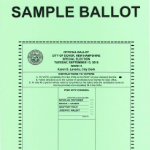
Apparently American voters, for the most part, actually are choosing their candidates based on who they’d want to have a beer with (or a wine, maybe?).
This is not a good standard.
In fact, it’s a really, really bad one.
But apparently it’s pretty popular.
It seems that I need to read “Neither Liberal nor Conservative: Ideological Innocence in the American Public” (I encoutered it from a citation in The Moderate Middle Is A Myth at 538).
It makes the case that many voters do not choose their candidates based on idiology but rather on group identification and membership, and apparently it makes it well. Being an accademic press publication it’s pretty spendy, but if it’s right about this it’s important.
Because that’s … insane?
Choosing who to vote for based on a consultant-crafted image of friendliness presented in scripted commercials is just nuts. (It’s so stereotypically American, yes, but it’s also nuts.) So is choosing a candidate because they identify themselves as a member of one of the only two viable Parties in the country.
Be better, America.
Here’s a quick attempt to rank the criteria we should be using to choose the candidate to support (or, in a better system, the party to join), in order of how much weight they should get:
- who will accomplish what you want accomplished?
- who will make decisions you agree with?
- who will not do things you think are bad?
- who will not make decisions you think are wrong?
(This is why I support Warren over Sanders, by the way: I probably agree with him more, but I think she’d be more effective at achieving things that I think are worthwhile.)
Yeah, it is more effort.
Filtering the candidates this way isn’t actually difficult. It only takes a few minutes to go through a list of everyone who’s been a candidate for a presidential nomination this year and decide who I should support.
The hard part is maintaining the ongoing level of awareness that makes this possible.
That takes an hour or so each day of skimming headlines and reading articles.
But do the work, people.
It’s important.
And it’s how you keep your republic.


I should add that, personally, I rarely make it into the positive considerations (who will do good things) outside the primaries.
In the general elections, it’s usually a choice of who will do less bad things or make fewer bad decisions.